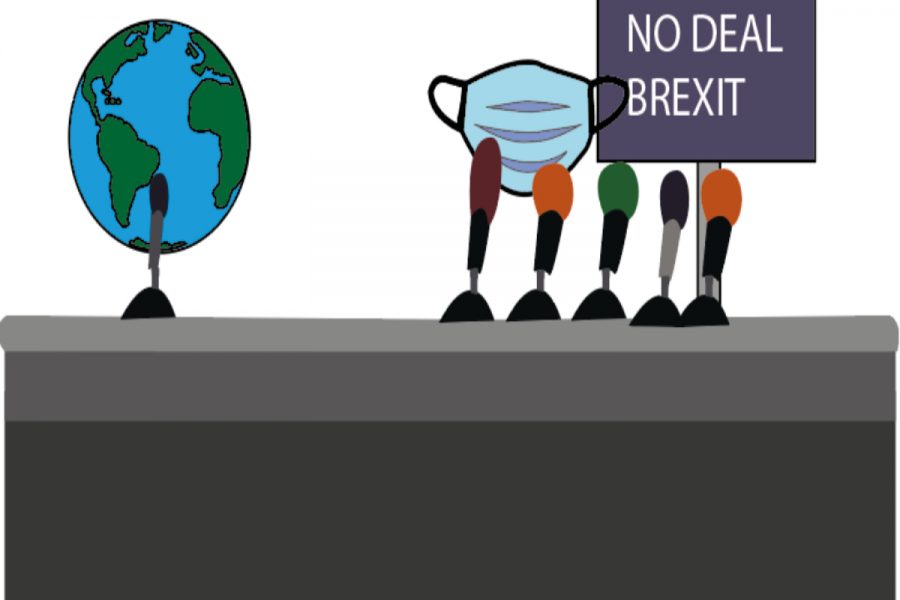Climate change affects every facet of our lives and has a number of far-reaching consequences. More than one million species are at risk of extinction due to climate change. According to the World Wildlife Foundation, average wildlife populations have dropped by 60% in just over 40 years. Furthermore, numerous reports from the World Research Institute detail the possibility of over 100 million people in extreme poverty by 2030. It is therefore irresponsible to pretend it will fix itself.
Due to deforestation, 11% of all global greenhouse gas emissions are caused by humans, according to Conversion.org. Furthermore, 11% of the global human population are currently vulnerable to climate change impacts. That’s 800 million people susceptible to droughts, heat waves, sea-levels rising, extreme weather and floods, among other natural disasters. However, we are unable to pretend that these are not the result of human action.
Despite the dire consequences of climate change, we as a species are constantly fixated on every new event going on at the time. Consequently, we often forget to focus on what matters most.
Therefore, we also need a drastic change in our collective mindset. As Gen Z, we are known for our savior complex: we are constantly striking, protesting and fighting for change. The fact that we are no longer tolerating what used to be customary in the past, such as racism, homophobia and abuse, is a big step forward. Yet, simultaneously, we also aren’t doing enough to solve the issue of climate change.
Paying too much attention to whatever is happening at the moment while forgetting about climate change demonstrates our collective inability to see the bigger picture.
We watch leaders such as former President Donald Trump to withdraw from the Paris Climate Agreement – endangering our planet further – still receive over 70 million votes. Similarly, by being too passive and losing track of our goal, we indirectly enabled Trump to make rules that will hurt the Environmental Protection Agency’s ability to limit air pollution.
And now we are already seeing consequences. According to The New York Times, when winter storms hit Texas, there were over 50 deaths, widespread loss of electricity and vast damage to most of the state.
Nonetheless, in November 2019, only two-thirds of registered voters in Texas believed that climate change is real, according to The Texas Tribune.
Ice is melting, millions of animal species are going extinct, and it is happening in real time. In fact, according to The Guardian, 150 to 200 species of plants or animals go extinct every single day.
Paying too much attention to whatever is happening at the moment while forgetting about climate change demonstrates our collective inability to see the bigger picture.
No matter who our leader is, it is important for us to first encourage local change. Here in Britain, we have our own political concerns such as Brexit, and social and safety concerns COVID-19 that others are sometimes forgotten about.
Britain’s climate change act was an extremely important step that legally binds Britain to commit to cutting down emissions, yet over the last 13 years not enough processes have been seen.
What has happened to climate change protests? In spaces big enough, it is still safe to protest, as long as individuals wear masks and socially distance.
For instance, I was at a BLM protest in June where everyone took the necessary precautions, and still gathered together to fight for change. Many more protests have taken place since then.
Even though the inability to protest with COVID-19 threats is justified, there is no reason to stop raising awareness on social media. While many posts are focused on Meghan Markle and Oprah, and many other events happening around the world, climate change is a global threat that should be constantly at the forefront.
These events prove that if we were determined to fight for climate change, we could. There are ways to bring change, even with COVID-19 and even from home. We must not wait to take action.
Greta Thunberg continues her efforts virtually, yet her message seems to have faded away amidst the conversations of debating parties, Brexit and any current events.
As the “internet generation,” we also tend to crave instant gratification. Unfortunately, climate change isn’t something that can be solved overnight. Thus, it’s important to continue pushing for more sustainable policies locally, nationally and internationally.
COVID-19 started with a perceived uptake in environmental action, leading to a false sense of security. With fewer cars on the road and flights in the air, pollution went down. The water cleared, and we heard stories of species returning to their original, less polluted habitats. With everyone staying at home, pollution was at an all-time low.
For the first time in a while, we felt hope. And then, as life slowly began to return to normal, we seemed to give up. Among this chaos, we completely forgot about the environmental progress that was made.
Although focusing on safety and containing COVID-19 is essential, we have started to neglect everyday and overall sustainability. For one, there are so many disposable wipes and masks around the world that have created excess waste.
Out of the approximately 500 students in the High School, a vast majority are in class at any given time. There are three class periods in which we wipe down our desks every day, and is only the bare minimum of using wipes. Therefore, as a school, we need to recognize how this virus has affected our impact on the environment.
We need to change our mindset of being distracted by the event of the week, and focus on the bigger picture.
While online learning definitely reduced excessive waste, as we go back to school it’s necessary to remember to bring reusable masks. It is also important for the school to begin using recyclable wipes.
SusCo has been working on implementing disposable wipes throughout the school. And despite their effort, it’s not solely their job to keep ASL sustainable. Every person in the school should be using reusable masks instead of disposable ones.
In addition, as we have been staying home more, online shopping has skyrocketed. Many of our main suppliers of internet purchases are unsustainable in terms of its packaging and shipping methods. Every person can be aware of where they buy their clothes and other products, and their own carbon footprint.
But that’s on a small scale. We need to change our mindset of being distracted by the event of the week, and focus on the bigger picture. The 100 companies that are responsible for 71% of emissions aren’t being held accountable either.
The Climate Clock in New York City says that we have less than seven years until we cause irreversible damage to our planet, if we haven’t already.
I understand that we individually may not be fully accountable for the imminent danger that our planet is in. However, the responsibility still falls on us now to create change whilst not letting other events make us forget about it.







